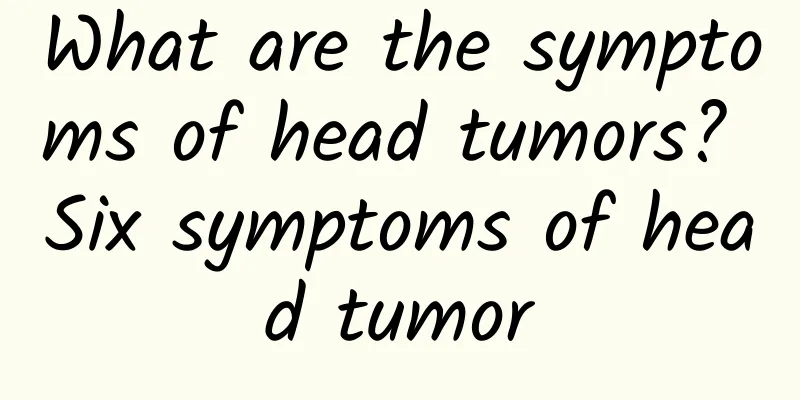What are the symptoms of head tumors? Six symptoms of head tumor

|
A head tumor, that is, a tumor in the brain, is a very serious disease. It is also a disease that is very difficult to treat and has a high mortality rate. Early detection and timely treatment can effectively inhibit the deterioration of brain tumors. The main symptoms of brain tumors include: headache, visual impairment, vomiting, epileptic convulsions, dizziness and some mental symptoms. If these abnormal scenes are found, the possibility of a brain tumor cannot be ruled out. 1. Headache Direct compression or traction of local pain-sensitive structures by the tumor can cause local headaches in a fixed location, accompanied by tenderness outside the local skull. Headaches are usually paroxysmal, with distending or throbbing pains, and often occur at night and early morning. As the tumor gradually grows larger and becomes persistent, the headaches tend to become widespread as intracranial pressure increases. More information sources (click to view) 2. Visual impairment The optic nerve head is swollen due to the obstruction of retinal venous blood return caused by increased intracranial pressure. It manifests as visual field defects, enlarged blind spots, and a sharp decrease in visual sensitivity. In severe cases, blindness occurs. 3. Vomiting Severe headaches are often preceded by nausea and vomiting, which is caused by stimulation of the vagus nerve center in the medulla oblongata. It usually occurs at night or in the early morning when the stomach is empty or the location of the headache changes. Vomiting is more common in infratentorial tumors than in supratentorial tumors. Vomiting is often the only symptom of cerebellar tumors in children. 4. Epileptic seizures Generalized epileptic seizures may be related to increased intracranial pressure, but they may also be local effects of brain tumors. 5. Dizziness Vertigo caused by increased intracranial pressure is not a feeling of spinning, but a more common feeling of instability, with a tendency to fall over when bending over. 6. Psychiatric symptoms In mild cases, the main symptoms may be only memory loss and decreased concentration, and irritability. When the intracranial pressure increases slowly, it can lead to progressive dementia, and the patient has intellectual impairment, apathy, and incontinence. When the intracranial pressure increases acutely or subacutely, it often causes mental confusion. When the pressure rises to a very high level, all mental activities of the patient almost stop and the patient falls into a coma. |
<<: How to treat herpes vesicles? Five treatments for herpes vesicles
>>: What are the symptoms of gastric bleeding? How is the treatment carried out?
Recommend
Cancer cell spread
When it comes to cancer, many people are afraid i...
Tips for hearing loss due to a cold
Everyone should be familiar with the disease of c...
What should I do if an adult has diarrhea and watery stools?
We often feel uncomfortable and sometimes have di...
Symptoms of chronic rhinitis, common symptoms need attention
Chronic rhinitis is difficult to cure. Chronic rh...
What medicine is good for spermatorrhea?
Weak semen is a manifestation of kidney deficienc...
What is the disease of long-term spitting white sputum?
Phlegm is formed when the human immune system dev...
Can rhinitis cause headaches?
Mild rhinitis will not cause headaches, but sever...
What to do if you fall asleep
Sleep problems are a concern for too many people!...
What are the differences between the symptoms of a hot cold and a cold?
Summer is a season when people are particularly p...
Can I eat nectarines when I have a cold?
It is good to eat nectarines when you have a cold...
What to do if you have persistent diarrhea and loose stools
Diarrhea is definitely a very painful and embarra...
Tourette Syndrome
Do you know about pediatric tics? In fact, this i...
Lingzhi American Ginseng Wolfberry
In daily life, we should eat some health-promotin...
Is red hair a sign of zinc deficiency?
Vitamin deficiency can cause many diseases, and w...
Is it taboo to sleep in the living room?
From the perspective of Feng Shui, the decoration...









